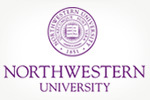Project Profile
On A Virtual Tribology System: Future Engineers and Future Powertrain Virtualization Technology
Northwestern University
Abstract
This IGERT award supports the establishment of a multidisciplinary graduate training program of education and research in the development of a virtual tribology system for future powertrains, which are the power-delivery systems of automobiles and aircraft. The current development of a powertrain tribological system is time-consuming, requiring integration… more »
This IGERT award supports the establishment of a multidisciplinary graduate training program of education and research in the development of a virtual tribology system for future powertrains, which are the power-delivery systems of automobiles and aircraft. The current development of a powertrain tribological system is time-consuming, requiring integration of new materials, engine technologies, trial-and-error, laboratory experimentation and extensive field-testing. The vision is to shorten the development time by developing a virtual powertrain through advanced computer modeling that simulates the interfacial interactions among critical machine elements. The development of such technology requires new engineers and scientists with cross-disciplinary training. The traditional engineering Ph.D. training model based on one advisor and a single topic does not work well in this new paradigm. Creating Ph.D.s who are educated in a multidisciplinary environment represents the educational focus of this IGERT program.Because of the need for multiscale modeling and multidisciplinary research, an aggressive education plan requiring the creation of a multidisciplinary learning/research environment, electronic education, industrial collaboration, international outreach and faculty re-education will be an integral part of the current program.
This program is a joint effort among faculty members in chemistry, chemical engineering, civil engineering, computer engineering, materials science and mechanical engineering, as well as physics. With the successful development of virtualization technology, it is hoped to educate a new generation of engineers and scientists who have strong technical skill and are proficient in multidisciplinary collaboration and in working with computer simulations of complex systems.
IGERT is an NSF-wide program intended to meet the challenges of educating Ph.D. scientists and engineers with the multidisciplinary backgrounds and the technical, professional, and personal skills needed for the career demands of the future. The program is intended to catalyze a cultural change in graduate education by establishing new, innovative models for graduate education and training in a fertile environment for collaborative research that transcends traditional disciplinary boundaries. In the fourth year of the program, awards are being made to twenty-two institutions for programs that collectively span all areas of science and engineering supported by NSF. The intellectual foci of this specific award reside in the Directorates for Engineering; Computer and Information Science and Engineering; Mathematical and Physical Sciences; and Education and Human Resources. « less
Contributions[?]
Project members' contributions to the library and showcase are listed here.
See All 12 Contributions »





